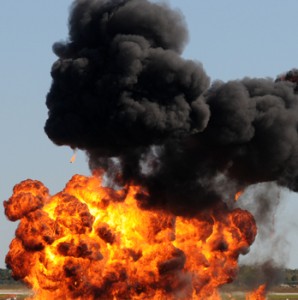Citing ‘customer complaints’, the BNSF railway has abandoned plans to buy 5,000 crude oil tankers.
Typically, leasing companies or oil companies own the tank cars that move crude along the tracks and not the railroads themselves. But last year, BNSF requested proposals from railcar manufacturers to produce cars for them that were stronger and safer cars than the current DOT standards. The company had hoped that producing cars with thicker shells, reinforced ends and thermal blankets would reduce the risks of using trains to haul oil.
Over the past two years, BNSF Railway has been involved in a number of incidents including a derailment and fiery crash that caused the evacuation of a small town in North Dakota just last week. The company confirmed that the eight cars that derailed were the unjacketed CPC-1232 models that the federal government would like phased out by 2020 due to safety concerns.
Related: Bakken Crude Train Derails
“A company spokesperson commented about the company’s decision to scrap the plans by saying, “If our customers do not want us in this business, we’ll re-evaluate. We’ll do something else.”
The debate over rail safety is continuing to escalate and just last month, NTSB urged stricter standards due to findings from study of recent train derailment accidents. They concluded that the current fleet of DOT-111 tank cars rupture too quickly and result in spillage and ignition.





